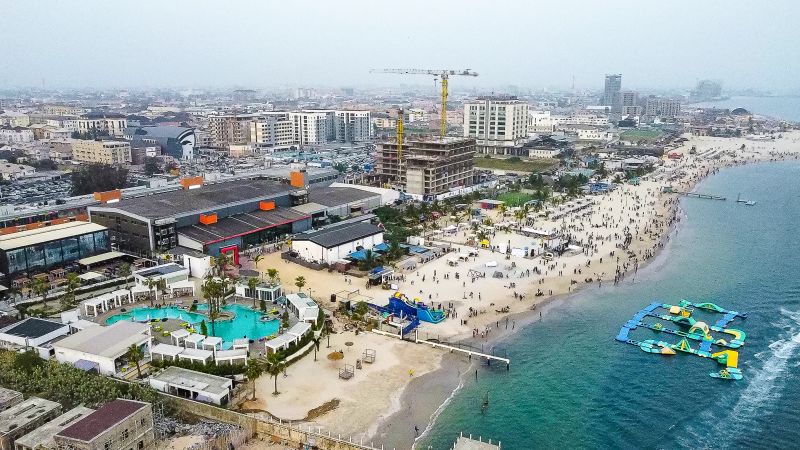
Nigeria wants a road to rival the Pacific Coast highway. A prime Lagos beach resort stands in the way
CNN
When Lagos state authorities notified Nigerian business mogul Paul Onwuanibe in late March that he had seven days to leave his multimillion-dollar beach resort so it could be torn down, he thought it was an April Fools’ Day hoax come early.
When Lagos state authorities notified Nigerian business mogul Paul Onwuanibe in late March that he had seven days to leave his multimillion-dollar beach resort so it could be torn down, he thought it was an April Fools’ Day hoax come early. Onwuanibe, 58, was told in a government letter that his Landmark Beach resort – a top-tier destination visited, he says, by about a million local and foreign visitors last year – had to be removed as it “falls within the right of way” of a planned 700-kilometer (435-mile) coastal highway designed to link the former capital city to Calabar, a port city near the border with Cameroon. Onwuanibe told CNN he had obtained the land in 2007 before the plans for the coastal highway were drawn up, and felt a mix of emotions after receiving the demolition order, which also urged him to file compensation claims. “One was amazement, second was concern and the third one was, ‘is this real or is this an April Fools’ (Day prank in) advance?’” Onwuanibe leads Landmark Group, a real estate developer and a key player in Nigeria’s tourism and hospitality industries. The group’s leisure beach, listed among Nigeria’s best seven beaches in 2023 by the Lonely Planet travel guide, is a lucrative part of the 13-hectare mixed-use Landmark site along the Atlantic Ocean beachfront in Lagos’s affluent Victoria Island area.













